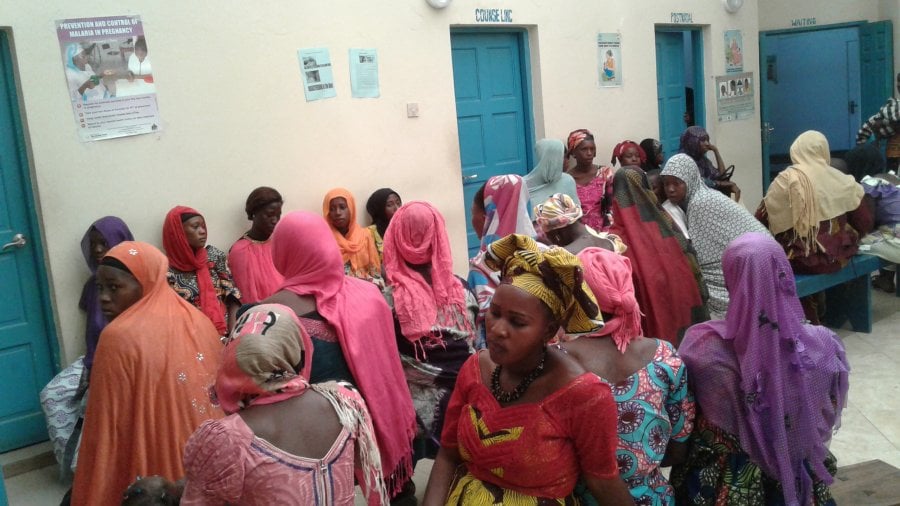
Women at a vaccination clinic
RSV causes breathing difficulties due to infection in the lower respiratory tract and is a leading cause of death in infants under six months old, especially in low- and middle-income settings (LMICs), where 97% of childhood deaths caused by RSV are estimated to occur. However, no RSV vaccine has been licensed to date, despite 50 years of research.
Lead author Prof Beate Kampmann specialises in vaccinations during pregnancy to help reduce infant infections. She explained: “We have no means of preventing poor outcomes from RSV in Africa, other than providing oxygen in hospitals. However, that’s a scarce resource and lack of oxygen for the infants leads to higher death rates in LMICs.”
Maternal antibodies are transferred to unborn babies through the placenta. Vaccines given during pregnancy can enhance specific antibodies for diseases like tetanus or flu – or in this case, RSV. This provides protection to babies immediately after birth and in the first few months when they are most vulnerable.
“Every child has a right to a healthy start in life and vaccines are one way to achieve this. Vaccination in pregnancy will provide the startup children need in early childhood,” said Dr Claire Oluwalana, a research clinician and clinical trial coordinator for the study.
Conducted in 18 countries, the Maternal Immunization Study for Safety and Efficacy (MATISSE) study explored if the RSVpreF (bivalent RSV prefusion F protein–based) vaccine could reduce the impact of RSV in young infants if given to their mothers.
Study sponsors Pfizer approached the MRCG at LSHTM to be one of the only two sub-saharan African trial partners and the only one in West Africa. In The Gambia, the study was conducted by the Vaccines & Immunity Theme under Kampmann and with experienced research clinicians, field workers, and laboratory support.
“This was a multi-national effort, and our contribution made sure that data from Africa could also be generated. We recruited over 200 pregnant women in Sukuta Health Centre,” noted Prof Kampmann.
“Mothers were so willing to be part of this trial – they were fully committed to their scheduled appointments and always wanted to know “When will there be another one?” added Dr. Oluwaluna.
Participants in their second or third trimester received either the RSVpreF vaccine or a placebo in this phase 3 trial that involved over 7000 women globally. Prevention from severe cases of RSV disease was found to be over 80%, and no safety concerns were uncovered for either mothers or infants.
Use of RSVpreF will next go through a licensing process before it can be recommended by national advisory bodies. Researchers expect it will become part of maternal care in the future and are already actively working with international partners on how to safely and economically deliver the vaccine.
Prof Kampmann said, “Following these positive results, the company has already filed for regulatory approval, which hopefully can be obtained by the autumn. Vaccination in pregnancy already happens regularly for tetanus in The Gambia and other LMIC settings, and this vaccine could find its way into the usual antenatal schedule.”
If you enjoyed this article and would like to build a career in global health, we offer a range of MSc programmes covering health and data, infectious and tropical diseases, population health, and public health and policy.
Available on campus or online, including flexible study that works around your work and home life, be part of a global community at the UK's no.1 public health university.
